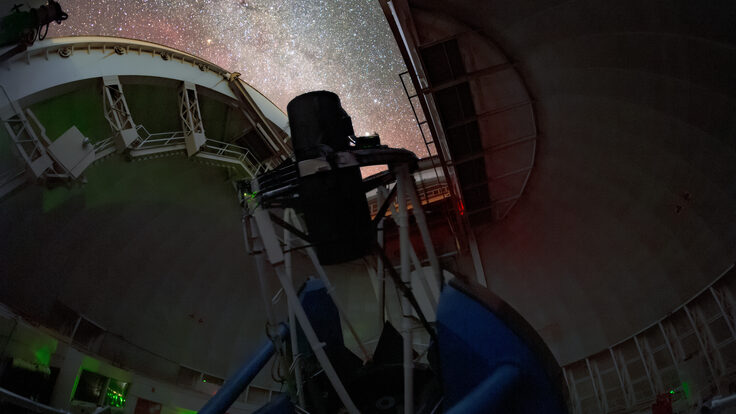As a graduate student, Laza Rakotondravohitra has already been a part of a couple of firsts in particle physics. He attended the first African School of Physics. He is also setting the bar high as the first international student from Madagascar to conduct research at Fermilab.
Over the next three years, Rakotondravohitra (pictured below) will study under the supervision of Fermilab scientist Jorge Morfin as he works toward his doctorate in physics, which he will earn from Madagascar’s primary public university, the University of Antananarivo.
Rakotondravohitra arrived at Fermilab this August, and a long-awaited arrival it was.
Two years ago, Rakotondravohitra was one of 59 students who attended the first African School of Physics, an intense three-week program where leading international scientists discussed cutting-edge theoretical and experimental physics with students well-versed in theoretical physics, but most of whom were from African countries that lack the facilities to teach experimental particle physics first-hand.
By the end of the program, professors ranked Rakotondravohitra as one of their top students, and with encouragement from Deputy Director Young-Kee Kim and Fermilab scientist Christine Darve, the head school organizer, Rakotondravohitra applied for and was eventually awarded a Fermilab International Fellowship to study at Fermilab and earn a degree as an experimental physicist. The next step was finding him a supervisor.
Enter Jorge Morfin, co-spokesperson of the MINERvA collaboration at the time. He had recruited five Latin American universities to the collaboration so their students could learn experimental techniques and earn their degrees on the experiment. And when Morfin looked to expand his established program to include students from other countries, Rakotondravohitra was an obvious choice.
“Various professors of universities in Africa were contacted, and they agreed that Laza was a great person to initiate the expansion,” Morfin said. “He came very highly recommended.”
Rakotondravohitra is working closely with Morfin and Debbie Harris on MINERvA and is familiarizing himself with the mechanics of experimental particle physics—knowledge he will bring with him when he returns to his home country.
“In Madagascar we don’t have experimental physics, so I’m going to try to use my future knowledge to help my country and students interested in experimental physics,” he said.
Rakotondravohitra thanks his academic supervisor in Madagascar, Roland Raboanary, professor Randriamanantany Zely Arivelo at University of Antananarivo, professor Stephan Narison a scientist at CNRS in Montpellier, France, the first African School of Physics team and the MINERvA team. He is also thankful for the support of his family. His wife will be joining him in Batavia this December.
“It was a dream to come here, so I will do as best as I can,” Rakotondravohitra said.
This article appeared in Fermilab Today on Thursday, Sept. 20.








